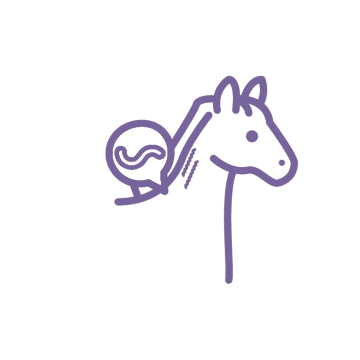- Shop
Collections
Categories
Skin Conditions
- Skin Conditions
- Apparel & Accessories
- Meet the Founder
- Shop
Collections
Categories
Skin Conditions
- Skin Conditions
- Apparel & Accessories
- Meet the Founder

Equiderma Neem Shampoo and Equiderma Skin Lotion have proven highly effective against the symptoms of Neck Threadworm. The skin lotion will halt the cycle by stopping the itching and subsequent damage, and render the area unappetizing to the culicoides, and allow the skin to heal.
It is also recommended to combat the issue internally by using the advised dose of ivermectin wormer. Consult your vet for amounts and frequency. Often it is recommended to use injectable ivermectin. Again this is something you should discuss with your vet to establish safe dosage limits. The adult neck threadworm cannot be killed, but their offspring can. With effective management with Equiderma, you can help to ensure your horse’s comfort.
